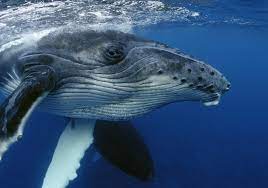Covid-19 pandemic: boon or bane for the environment?
The coronavirus outbreak (COVID-19) first emerged at the end of December 2019, from the Seafood market in Wuhan City of China, and was declared as a global public health emergency by the World Health Organisation (WHO). Nationwide lockdowns were imposed and the everyday activities of the world were turned upside down. This blog intends to take into account both the positive and the negative environmental impacts of the pandemic.
Let us first have a detailed look at the positive impacts of the pandemic.
1. Reduction in greenhouse gas emissions
As all the industries, companies and factories were shut down, there was a drop in greenhouse gas emissions which reduced the level of air pollution- a positive sign for the ozone layer. A halt in travel related activities lead to lesser consumption of fossil fuels, adding to the good quality of air. This was a good sign for the ozone layer and it seemed like the earth was healing itself.
2. Reduction in water pollution
Usually industrial waste is dumped in water bodies. This is extremely hazardous. During the lockdown period however, no such disposal of waste took place and the water bodies had time to regenerate fresh water. For example, there was improvement of water quality at Haridwar and Rishikesh due to the sudden drop of visitors.
3. Reduction in noise pollution
Unwanted noise creates an adverse effect on all the living beings and noise pollution is a serious issue. However, quarantine mandated the people to stay indoors which reduced the economic activities and communication which reduced the noise levels in many cities across the globe. As a result, we were able to enjoy the chirping of birds and fresh air for the first time in years. The world at a standstill brought back animals to their natural habitat. For instance, Dolphins returned to the canals of Venice.
We also came across the negative impacts of the pandemic as follows.
1. Increase of biomedical waste
Since the outbreak of the virus, the generation of medical waste has increased around the world and poses a major threat to public health and the environment. Hospitals generate a large amount of infectious and biomedical waste for the purposes of sampling, diagnosing, treating and disinfecting a large numbers of patients with suspected COVID-19. For example, in Wuhan, China, more than 240 tons of medical waste was generated every day at the time of the outbreak. This is nearly 190 million tonnes more than the before pandemic era. Therefore, hospital waste must be properly disposed of to reduce further contamination of the environment.
2. Safety equipment use and haphazard disposal
To shield themselves from the virus, people have adopted the use of face masks, hand gloves and different protection equipment, which increases the quantity of healthcare waste generated. The manufacturing and use of PPE has increased worldwide. For instance, China increased the manufacturing of clinical masks to 14.8 million. Sadly, most of these masks are disposed off without much thought. Such hap-hazardous dumping of waste in landfills and the ocean can have adverse effects on marine life and their natural habitat.
3. Other effects on the environment
Recently, large amounts of disinfectants have been applied to commercial and residential areas to eradicate the SARSCoV2 virus. Such widespread use of disinfectants can kill beneficial species, leading to ecological imbalances. In addition, the virus has been detected in the urban sewage system of many countries, including Australia, India, Sweden, the Netherlands and the United States. Therefore, additional measures for wastewater treatment are indispensable, which poses a challenge for developing countries such as Bangladesh, where urban sewage is not treated and is discharged into nearby water bodies and rivers.
Although the pandemic is a predicament, it has given the environment time to breathe and heal. It is assumed that, the negative environmental consequences are short-term, yet it’s time to form a correct sustainable management strategies for long-run benefit. All in all, the pandemic has elicited a worldwide response and made us united against the virus. Similarly, to shield the environment from further damage, united effort on the part of the countries ought to be imperative.





This was pretty damn beautiful. Really jerked a few tears reading this. Reminded me of when I rescued a beautiful blind girl in St Malo. I had just survived from an unfathomable bombing with my giant friend. Ram straight to her and killed a fellow soldier to save her. I was able to help her escape but it was impossible for me to survive after I deserted my army and my treacherous betrayal. I picked up a huge diamond near me to help me escape and make a living. Even faked my death by walking into a landmine. Who even places those near a hospital (LMAO). Ahhh. The old days....
ReplyDeleteBeautifully written!
ReplyDelete